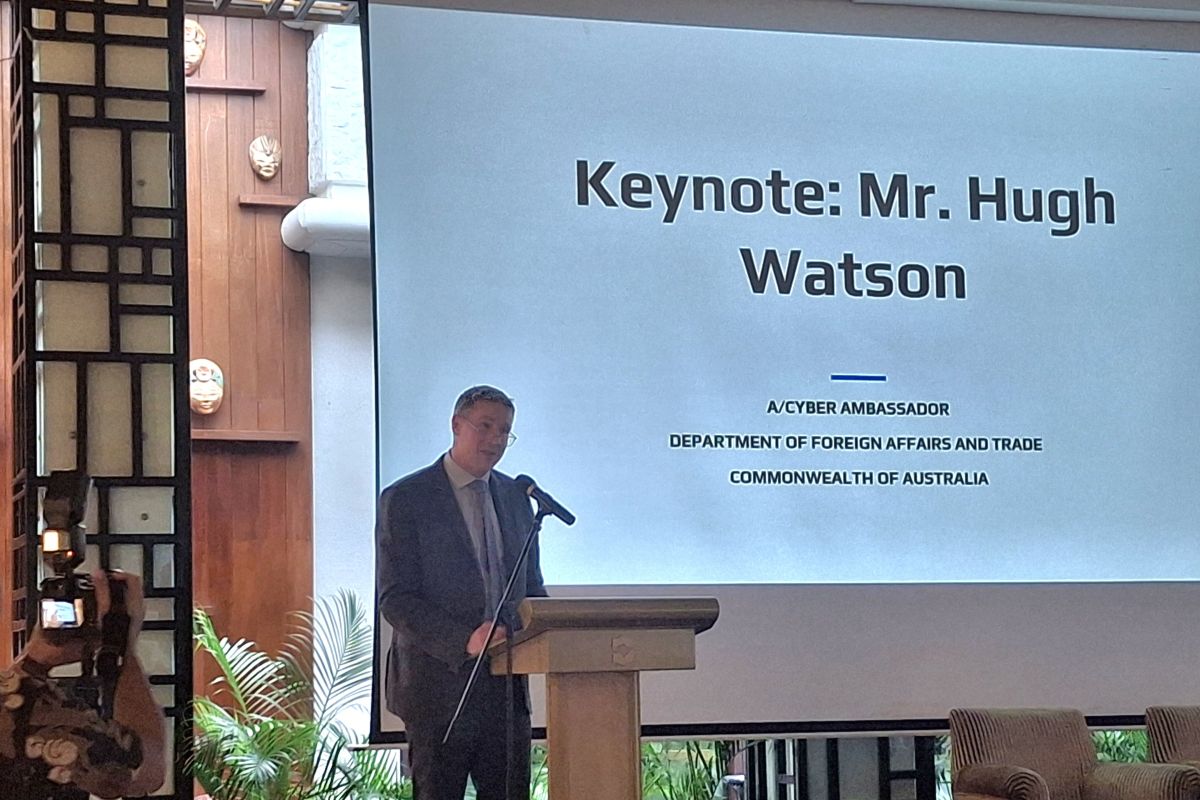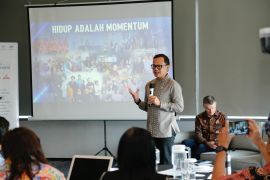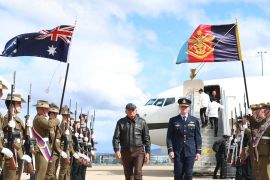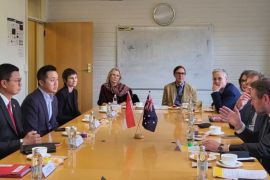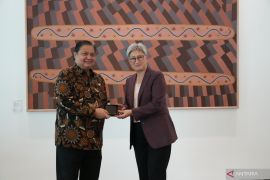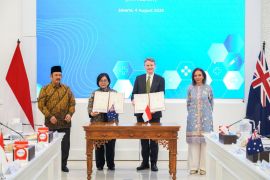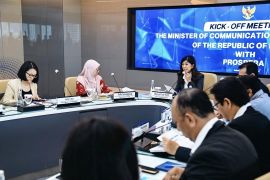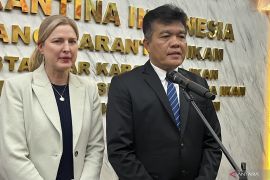“It is more important than ever for states to pursue cyber diplomacy, build international cooperation, dialogue, and trust to prevent conflict and enhance resilience in cyberspace,” Watson said at the launch of the Cyber Diplomacy Handbook and Virtual Course in Jakarta on Tuesday.
The launch was organized by the ASEAN Study Center at the University of Indonesia (ASC UI) in collaboration with the Australian Strategic Policy Institute (ASPI).
Watson noted that the international environment is currently facing increasingly complex challenges, with intense strategic competition in cyberspace and in the use of critical technologies.
He underlined that cyber diplomacy is essential to foster understanding and cooperation among states in addressing shared challenges and avoiding conflicts in cyberspace or elsewhere that may involve cyber tools.
Through cyber diplomacy, Watson expressed hope that Indonesia and Australia can advance national, regional, and global interests in security, while also maximizing opportunities for prosperity offered by cyberspace and the global digital economy.
For Australia, cyber and critical technology diplomacy is a key foreign policy priority.
“We recognize that cyber and critical technologies underpin our national security, the protection and realization of human rights and freedoms, global economic prosperity, sustainable development, and international stability,” he said.
He added that cooperation is vital to ensure secure access to cyberspace and critical technologies, and to guarantee their responsible use.
Watson noted that under its 2023–2030 National Cyber Security Strategy, Australia is committed to enhancing regional cyber resilience, working with partners across the region to address evolving challenges.
The strategy also affirms Australia’s commitment to upholding international law and the principles of responsible state behavior in line with the common interests of regional countries.
As one of Australia’s closest and most important partners, Indonesia is seen as playing a crucial role in shaping a cyber-resilient region capable of withstanding the threats and misuse of cyber and critical technologies, while maximizing their benefits.
Watson described the cyber diplomacy course organized by ASC UI and ASPI as a concrete example of practical collaboration between Australia and Indonesia to strengthen cyber capacity.
Through the course, he said, both countries aim to ensure that all nations in the region are better prepared to face cyber challenges, avoid conflict, and secure shared benefits.
Meanwhile, the Dean of the Faculty of Social and Political Sciences at the University of Indonesia, Semiarto Aji Purwanto, who delivered the keynote address at the launch, stressed that cyber diplomacy is vital to build mutual respect, trust, and a shared commitment to tackling emerging cyber challenges.
“Threats such as ransomware attacks, misinformation campaigns, and intellectual property theft do not recognize national boundaries,” he said.
“These are common challenges that require common solutions. This is where cyber diplomacy becomes the most powerful tool. And in today’s rapidly evolving digital landscape, dialogue remains the cornerstone of our partnerships,” the dean added.
Related news: UI expert outlines three pillars to boost Indonesia's cyber strength
Related news: National Task Force to enhance digital resilience
Translator: Katriana
Editor: Primayanti
Copyright © ANTARA 2025
